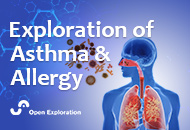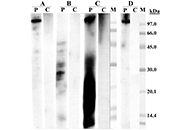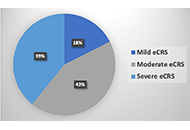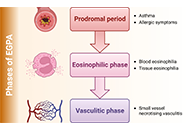4 results in Exploration of Asthma & Allergy
Latest
Sort by :
- Latest
- Most Viewed
- Most Downloaded
- Most Cited
Open Access
Review
Eosinophilic gastrointestinal disorders: new perspectives and the emerging role of biological therapies
Francesca Losa, Arianna Cingolani
Published: June 30, 2023 Explor Asthma Allergy. 2023;1:60–72
This article belongs to the special issue The Era of Biologics in Allergy

Open Access
Case Report
Food fish allergy as a result of occupational exposure to fish collagen
Felipe Santos Vicente ... Borja Bartolomé Zavala
Published: June 30, 2023 Explor Asthma Allergy. 2023;1:55–59

Open Access
Original Article
Assessing chronic rhinosinusitis with nasal polyps severity by “Japanese epidemiological survey of refractory eosinophilic chronic rhinosinusitis” algorithm
Sérgio Duarte Dortas ... Solange Oliveira Rodrigues Valle
Published: June 16, 2023 Explor Asthma Allergy. 2023;1:49–54
This article belongs to the special issue Precision Medicine in Allergy and Rhinology

Open Access
Review
New therapeutic approaches with biological drugs for eosinophilic granulomatosis with polyangiitis
Alejandra Carrón-Herrero ... Giovanni Paoletti
Published: June 08, 2023 Explor Asthma Allergy. 2023;1:31–48
This article belongs to the special issue The Era of Biologics in Allergy

Journal Information
 Previous
Previous